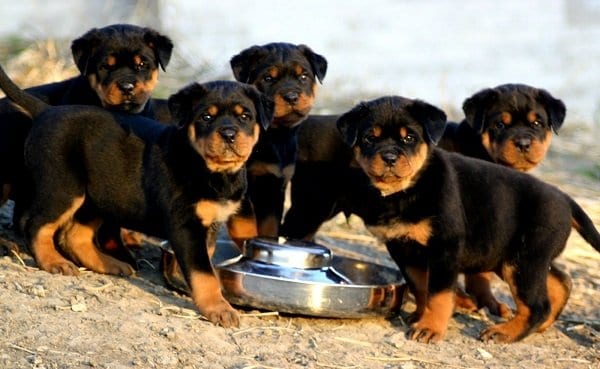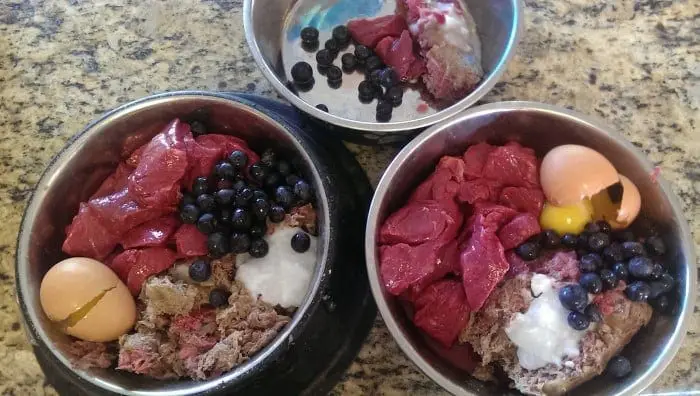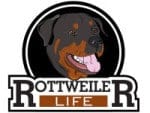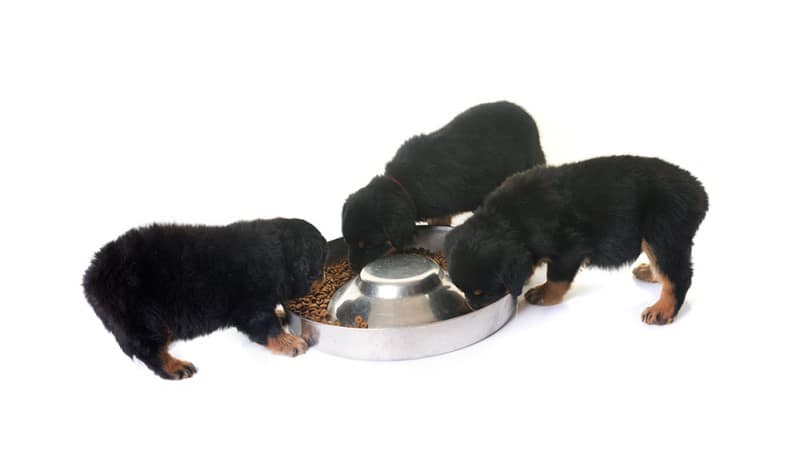Every breed of dogs has their own nutritional requirements and you need to do some research on Rottweiler food even before your puppy comes home. This is all the more important if you happen to be a first time owner of this lovable breed. The best way to ensure a happy and healthy dog is a healthy diet.
Rottweilers are a medium-large breed and grow quite fast. So naturally, their food requirements are quite different. Feed them according to the dietary requirements of larger breed dogs. The food given must ensure that they grow up without the risk of metabolic diseases.
READ: Five Things Rottweilers Like and Love You to Do
There are some fundamental rules when it comes to choosing food for your Rottweiler puppy. Rottweilers are primarily carnivores like all other dogs. Rottweilers puppies need more proteins in their diet as they are at the growing stage. They need the protein to develop muscles and build their strength. Rottweilers grow faster than they mature. It is thus important that they get the right amount of nutrients to protect them from problems related to growth.

While choosing a formulated puppy food, choose one that contains the finest natural ingredients added in the right ratio. Serve the right quantity to your puppy and make sure they get the right quantum of exercise.
The choice of dog food for your Rottweiler is overwhelming so be clear on what the basic Rottweiler food should contain for your puppy.
The source of protein should be identifiable and maybe turkey, lamb, chicken or beef. Give other exotic animal-based proteins to dogs with allergies. Prefer foods that have organic, human-grade ingredients.
Add grains as a substitute for meat to make it cheaper. But do not give excess grains as it can trigger an allergic reaction. Corn, rice, buckwheat maize, and oats are generally safe. Their food should never contain preservatives, artificial color or sugar. Do not give animal by-products as they have zero nutritional worth and are indigestible.
Serve Rottweiler food to puppies that consist of around a quarter of protein. Proteins get excreted through the kidney. This prevents your Rottweiler puppy from getting overweight. But some researchers argue too much protein in their diet will cause physical issues like hip dysplasia, ‘knuckling over’, and various other muscular and skeletal ailments. The amount of fat should stay below 18% for a puppy. Anything above that and it will add to their fat deposit. Overfeeding, if combined with a lack of sufficient exercise is dangerous. It will cause obesity as well as hip, bone and joint problems that will aggravate age.

The addition of extra calcium in Rottweiler food has no significant benefits on the growth of a puppy. Instead, it can cause abnormal development of the skeletal frame. Calorie intake should be around 350-380 calories or k/cal per cup.
READ: What Is The Best Diet For Your Rottweiler?
The right Rottweiler food for your puppy will keep them healthy and happy. As such, they stay more energetic, have fewer health problems and are less prone to becoming overweight. When the nutritional level is low, your Rottweiler puppy will be listless and sluggish. Keep to the right dietary requirement and balance it with the right level of exercise for a healthy, energetic, lean, and happy dog.


